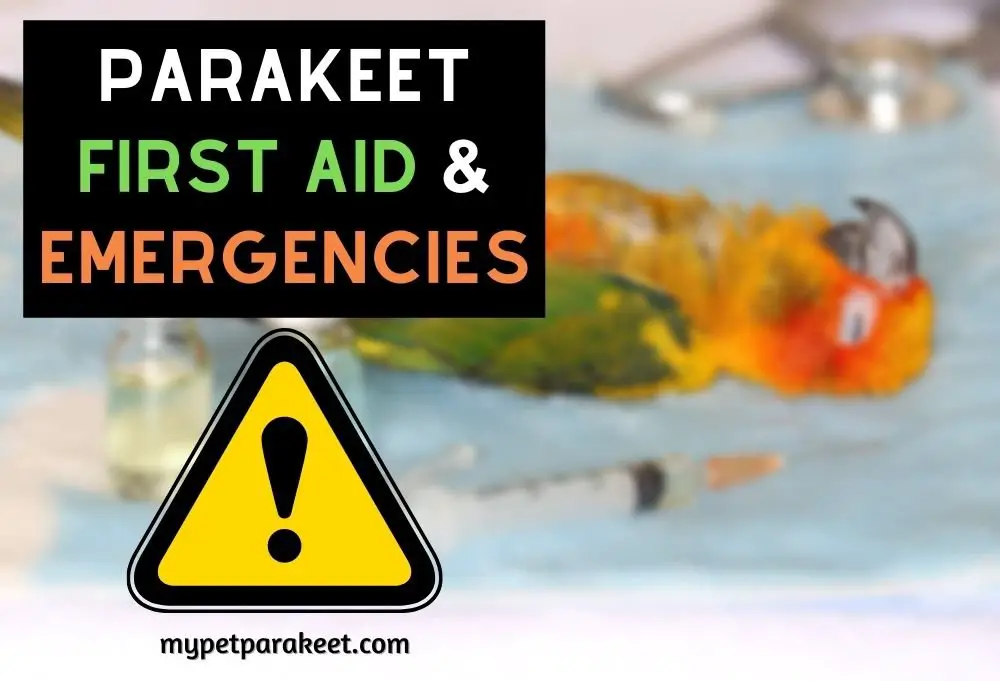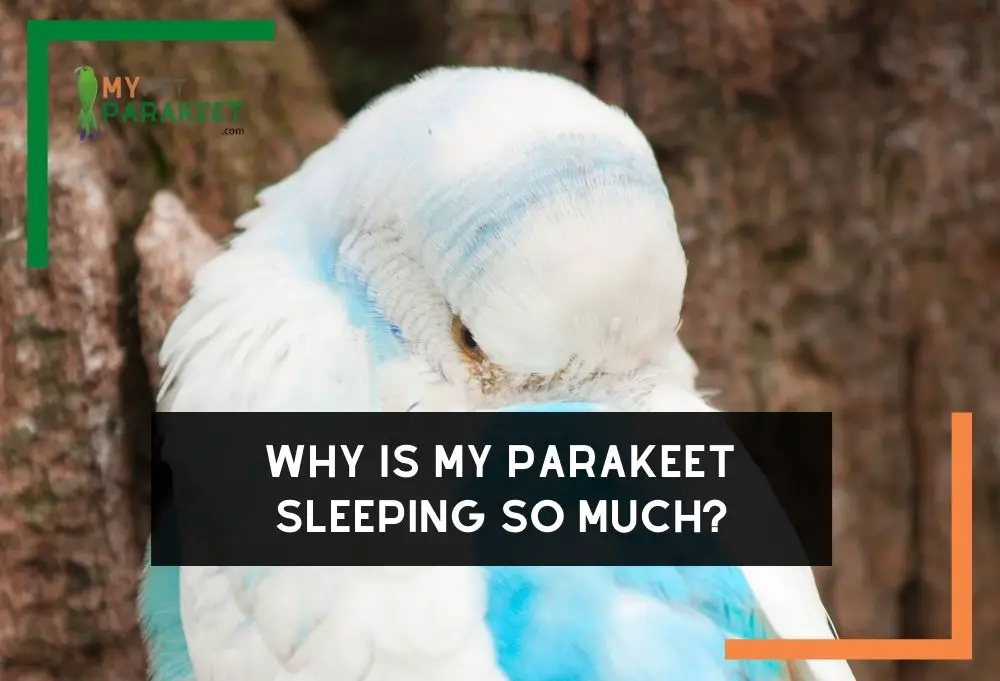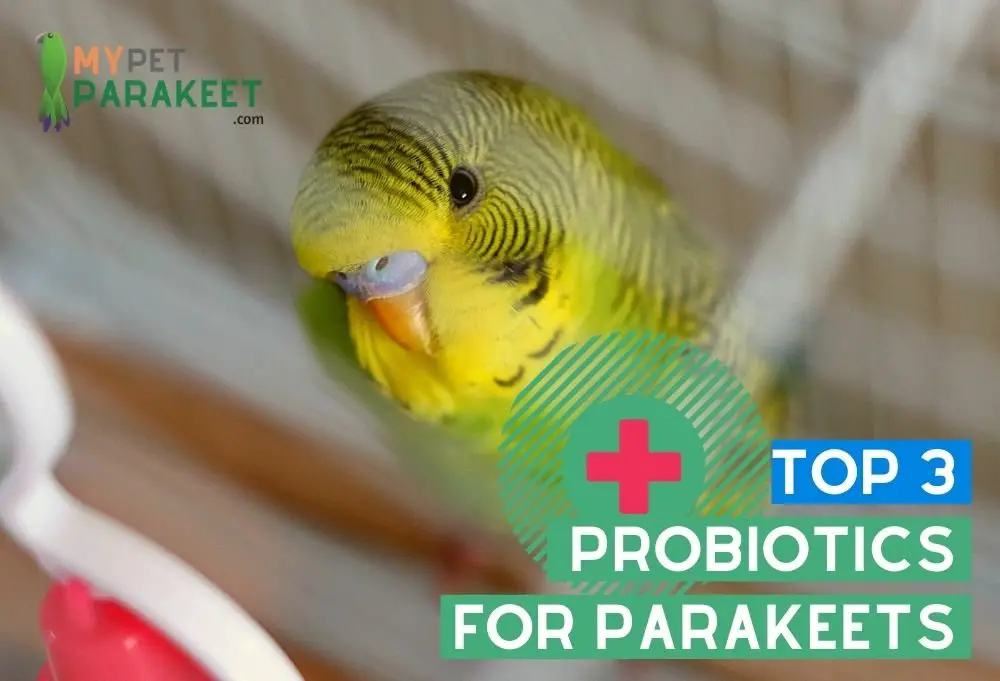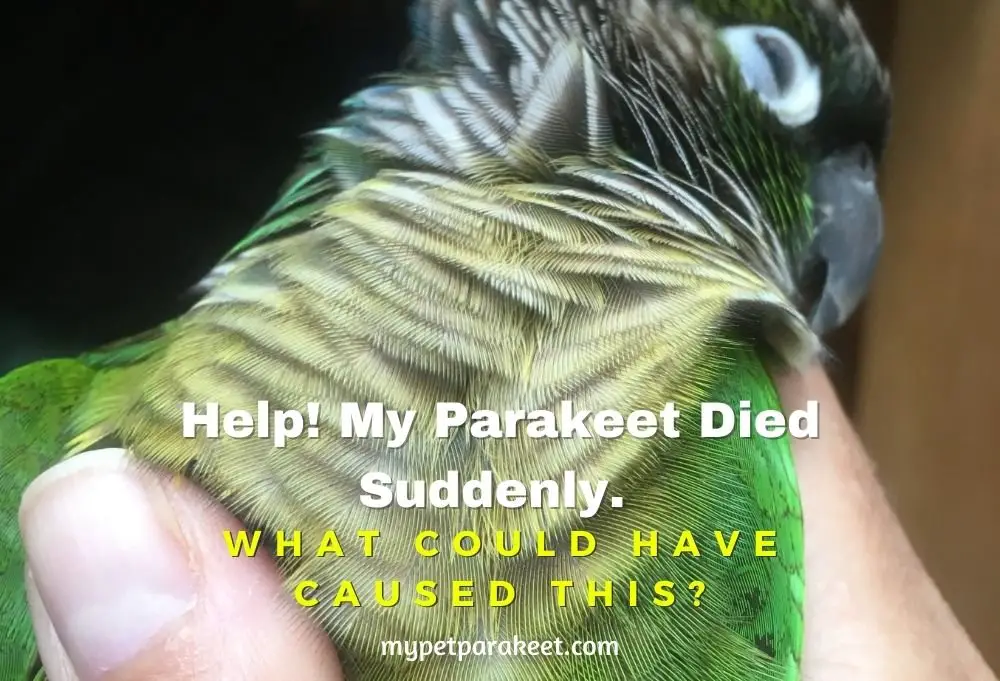You have recently brought home your lovely parakeet and have been thoroughly enjoying their company.
When you come home one day and find your parakeet looking and acting differently, you suddenly realize that your favorite bird is probably stressed. Can parakeets die from stress?
As you might know, parakeets are some of the world's most imaginative and highly emotional bird species. They respond differently to sudden changes in lifestyle, the weather, imaginations, and various other things that could change. As such, they are very susceptible to stress, and if not quickly addressed, your parakeet could easily die from this stress.
Your parakeet can be suffering from either physical or psychological stress and depending on what may be causing it, its seriousness or possible fatal result can further be determined by whether it has been continuous for some time or is an emergency.
Emergency stress in a bird causes it to release large amounts of adrenaline into the bloodstream. This adrenaline drains the bird's sugar supplies in the body, dilates its blood vessels, and raises its blood pressure.
This reaction gives the parakeet surplus energy, enabling it to fly away from the dangerous situation quickly. This response is different for a pet parakeet confined to a cage in a room, limiting its flight space and exposing it to sudden exhaustion in the adrenal glands.
Continued stress, resulting from an unchecked illness or continued exposure to a situation the bird views as stressful, also leads to exhaustion of the adrenal glands, which almost always leads to death.
While this may sound worrying, it is important to understand what causes stress in parakeets and what you can do to help your bird if and when it is stressed.
How To Know if Your Parakeet is Stressed
According to PetMd, there are a few changes in behavior that could indicate your pet bird is stressed.
- Increased biting; can be a sign of fear and pain
- Increased screaming could be a sign of pain and in some cases fear or stress
- Decreased screeching can also indicate severe pain, stress, or underlying illness
- Increased feather-picking
- Self-harm like biting is a sign of stress
- Loss of appetite
- Weird behaviors such as pacing, toe-tapping, and more
Causes Of Stress In Parakeets
Parakeets get used to and stick to their daily routines and patterns, and when these are altered or disrupted in any way, your pet bird is likely to stress. Changes in the environment where the bird lives, according to Wikipedia, are also likely to affect it leading to stress.
The first sign to look out for if you suspect your parakeet is stressed is if the bird could be in pain. Most birds will tend to withdraw and keep to themselves if unwell. Check for broken skin, bruises on the wings, the beak, legs, all parts of the body that could be bruised as the bird plays inside the cage.
Moved to a new home? Do you have new people or pets living with you? Then, your parakeet is likely to stress. Simple changes around the home like new paint on the walls or moving your bird's cage to a different location in the room or house. Changes in lighting in the room could also significantly affect your bird's sleep cycle, causing it to stress.
Sudden changes in your routine may also stress your bird. The amount of attention your bird is used to might have reduced, and parakeets, being very social birds, will quickly notice this.
Have you bought a new toy for your bird recently? This toy could be stressing your bird. Your parakeet could be unable to quickly adapt to the new toy and viewing it as a predator. With little space to run in the cage, the bird's fear and anxiety around the new toy could easily trigger stress, leading to death if not checked on time.
Wild animals in or around your compound are also likely to make strange sounds that frighten your parakeet. If your bird's cage is located near a window where the parakeet can see these animals, this could also be why it is stressed.
What To Do To Avoid Stress-Related Parakeet Death
As with any other pet, the first thing to do if you suspect your parakeet is stressed is to find out what is causing it. If you are worried that the bird could be sick and not just stressed, call a veterinary doctor or go to one and make sure your parakeet is attended to quickly enough to avoid death.
You may find that your parakeet is stressed because of new individuals or pets in your household. If so, you should get an avian-savvy veterinarian who will help the bird get used to the individual. The veterinarian will give your parakeet positive reinforcement where they show the bird a treat at the sight or sound of the new individual.
This training helps the bird start associating the unknown person or pet with good, positive things, quickly reducing stress. You could also take time to acclimate the bird with any new toys in this way if you think they could be the reason it is stressed.
If your parakeet is stressed because of a recent move of the cage, you can consider returning it to the previous position.
Suppose the bird is stressing because of loud noises coming from animals outside. You could consider moving it to a quieter location in the house, preferably away from windows where there are no chances of seeing the animal or hearing the noises.
If your parakeet is picking its feathers, biting, screaming, or hurting itself in any way, consider distracting it by giving it extra attention. You can play with it more or provide new toys. Be sure to orient the bird to any new toys until it is comfortable enough to play with them.
A radio or TV also offers a good distraction for a stressful parakeet.
Frequently Asked Questions (FAQs)
What Do Parakeets Do When They Are Stressed?
A stressed parakeet tends to bite itself, or anyone close it. It may also scream in an attempt to get your attention.
Your bird could be having a hard time expressing itself, commonly referred to as decreased vocalization.
If you see your parakeet picking on its feathers or hurting itself in any other way, then it is very stressed and needs quick attention.
Changes in the bird's feeding pattern and frequency, and any other stereotypical behavior that is not how your parakeet behaves typically is also a red flag.
How Do I Know If My Parakeet Is Stressed?
Look out for any unusual behavior in your bird. If it looks withdrawn and drained, then it could be stressed. If it screams on seeing you, then it is disturbed and trying to catch your attention.
There could be feathers on the cage's floor, a sign that the bird could be picking them from its body in protest. If it is not feeding as usual or has hurt itself with its beak, then it is stressed, and it's time for you to call for help.
How Do You Know If A Parakeet Is Happy?
A parakeet is a highly social bird, and the first way to know if it's happy is by its behavior. If it's vocal and singing when it wakes up in the morning, then your winged friend is happy.
If it's singing along with the radio, chirping away, trying to mimic you, playing with you, climbing, or flying in its cage, then it's happy.
Parakeets also like to nibble on their food throughout the day. If you see it making constant trips to its feeding area, then it is super happy.








